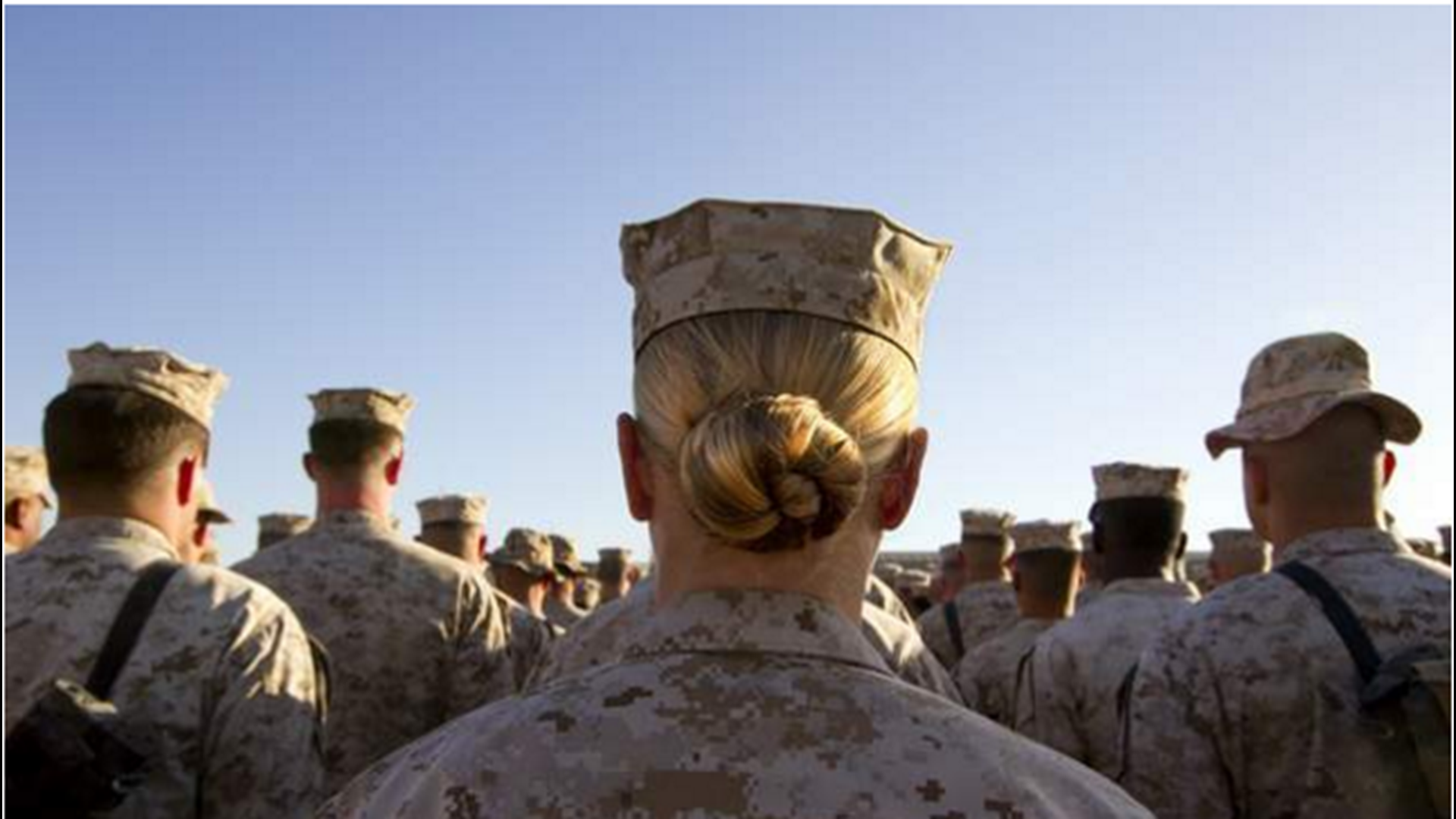DES MOINES, Iowa — This is part two of Local 5's two-part series celebrating 100 years of health care for women in the military. For part one, click here.
The U.S. military has historically been male-dominated, but women have made contributions since the American Revolution. However, it was exactly 100 years ago that female veterans were first offered health care through the Department of Veterans Affairs, known as the VA.
Although VA health care has come a long way since 1923, some female veterans say more is needed to address their unique needs and challenges.
Jessica Maifield served in the U.S. Army Reserve for 22 years. She remembers a VA visit during her early years of service.
"I cannot tell you how many times I got stopped in the hallway to say, you know, 'Who are you here to visit? Who are you seeing?'" Maifield said. "You know, [it] didn't occur to anybody at that time, 20 years ago, that I was actually the patient."
Today, Maifield is more than recognized in the VA hallways: she’s a nurse practitioner who is offering health care and serving her fellow female veterans.
"It's very easy to get a referral," Maifield said. "You know, a lot of people think that it's difficult, and it's a long process, and how long is it going to be before I receive care, which has been a long-standing stigma [at] the VA. Fortunately, we've come very far in that and we can get people in pretty quickly."
Amy Diaz started her U.S. Army career as a supply specialist. She, like Maifield, turned to nursing after retirement providing the special care women veterans need.
"Primary care is very important for women," Diaz said. "We want to be able to have access to primary care and women's services for like gynecological needs, and even mammography is important. Those are all needs that women require to be healthy."
The VA also offers care for those who have experienced sexual assault. Last year, almost nine thousand sexual assaults were reported within the military, with more than seven thousand of those reports occurring to people actively serving.
Navy Reservist Susan Mayes spoke to Local 5 about her experience as a sexual assault survivor. Although she reported her attack by another military member, Mayes understands why military women who experience sexual assault stay silent.
"I think the issue that they face is, there's kind of a blind eye to it," Mayes said. "They don't want to admit that it happens, and probably as often as it happens. It's more common than what they want to believe it is."
Mayes understands the emotional setbacks military sexual assault can cause for women in these circumstances.
"There's a bit of feeling ashamed for what happened. Just not wanting to talk about it, just wanting to bury it and just hope that it goes away," Mayes said. "So I think those are the biggest barriers, and not knowing that you can get that treatment for [military sexual trauma through the VA is also one of the huge barriers to it as well."
Mayes didn’t get the legal justice she wanted and admits she didn’t seek the health care she needed.
"At that time, I really had no care plan for for any kind of treatment, she said. "It didn't come until my reserve time was over in 1991-92. It didn't come until 2012 before I started to actually deal with the military sexual trauma."
Now as a Medical Support Assistant, Mayes makes it her mission to support sexual assault survivors who seek help at the VA.
"It does help to have that someone to talk to and to get it out," Mayes said. "As much as it hurts and as painful as it is, it does help. So just don't be quiet and don't not seek treatment for it."

